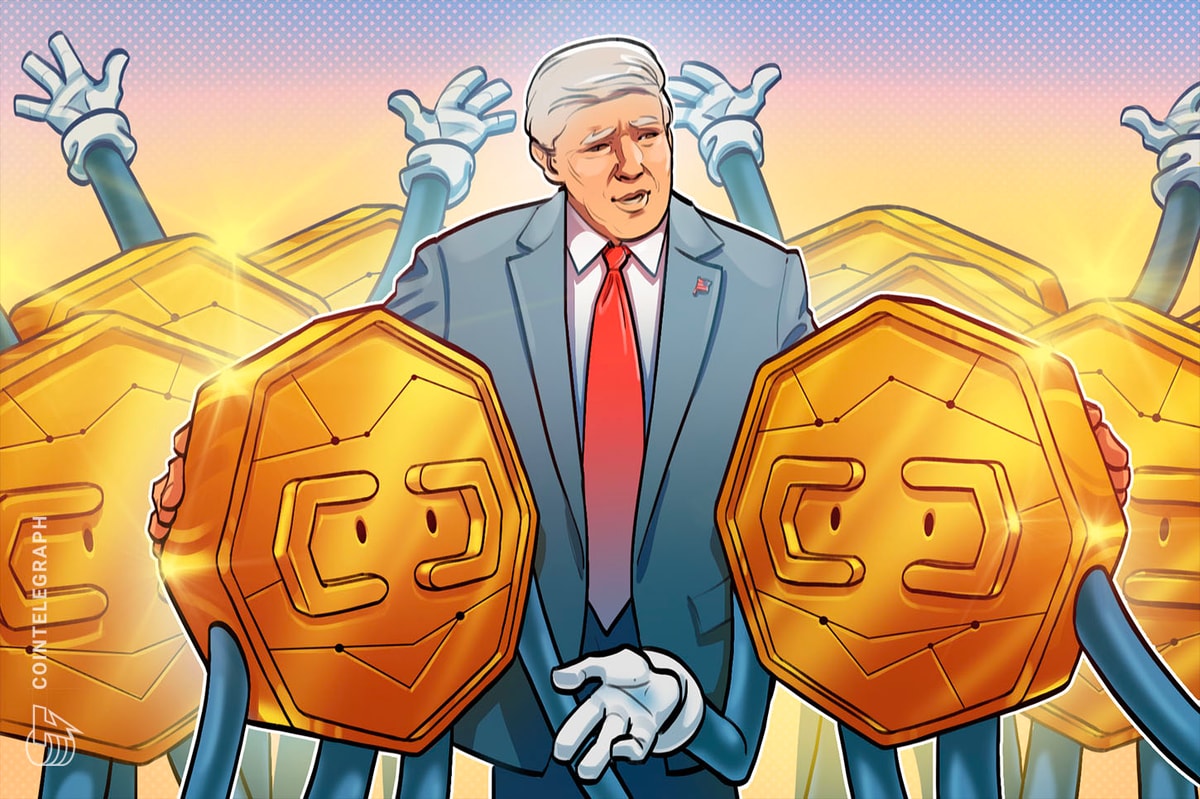Crypto industry figures have welcomed news that the United Kingdom’s main financial watchdog will make it easier to list crypto investment products.
On March 11, the Financial Conduct Authority (FCA) announced that it would allow professional investors to trade crypto exchange-traded notes (ETNs) created by recognized investment exchanges (RIEs).
Even so, restrictions that prohibit the participation of retail investors remain, making the FCA’s announcement a partial victory only for broader crypto adoption.
Regulatory conditions in Europe prohibit the offering of an exchange-traded fund (ETF) for a single asset, such as Bitcoin (BTC) or Ether (ETH). This makes ETNs the favored exchange-traded product (ETP) in the European Union and the U.K., where financial rules are still broadly harmonized despite Brexit.
With the green light from the FCA, British traditional finance and U.K. traders may shortly have easier access to crypto-tied financial products. Since the go-ahead also comes with conditions, it is perhaps unsurprising that the caveats become the focus.
Natalia Latka, policy director at blockchain analytics firm Merkle Science, told Cointelegraph, “The FCA’s decision to allow recognized investment exchanges to list crypto [ETNs] is a significant move forward. Despite the restrictions, this action not only fosters the integration of cryptocurrency-related products into a regulated environment but also narrows the divide between the crypto sector and the traditional financial industry.”
Latka also noted the exclusion of retail investors.
“Despite aspirations to become a crypto hub, the U.K.’s approach underscores a notable hesitancy to embrace the rapidly growing interest in crypto assets among retail investors,” said Latka.
Cointelegraph spoke with George McDonaugh, co-founder and co-managing director of KR1, a European digital asset investment company. McDonaugh lauded the move but said the market needs to be more accessible.
“The news that the FCA will not object to requests from [RIEs] to create a U.K. listed market segment for crypto asset-backed [ETNs] is a move in the right direction for the U.K. regulatory environment for crypto,” McDonaugh said.
McDonaugh also focused on inclusion, stating that more companies need to be enfranchised into U.K. markets.
Recent: Moon or doom: Why do so many crypto startups fail?
He said, “We would like more to be done around the U.K.’s listing regime, allowing more companies to join the Main Market of the London Stock Exchange and its junior market, for the U.K. government, other policymakers and the industry to achieve its ambition of becoming a truly global hub for the crypto industry.”
Whatever way you slice it, the conclusion is broadly similar; if the U.K. is serious about its nebulous crypto hub aspirations, it needs to do more to broaden participation fast.
The crypto hub dream
It’s been some time since U.K. Prime Minister Rishi Sunak announced his plan to prioritize financial technology in Britain. In July 2021, as Chancellor of the Exchequer, Sunak promised to “implement a sweeping set of financial services reforms” over the next few years.
In April 2022, Sunak said, “It’s my ambition to make the U.K. a global hub for crypto asset technology.”
We're working to make the UK a global cryptoassets hub. We want to see the businesses of tomorrow, and the jobs they create, here in the UK.
— Rishi Sunak (@RishiSunak) April 4, 2022
Today @JohnGlenUK set out how we are going to encourage crypto investment and technology in UK markets. https://t.co/MdZ5IOLZtH
Despite these ambitions, the FCA remains incredibly cautious about the industry, and measurable advancement is hard to come by. Under these conditions, even a small positive step in the right direction feels like cause for celebration.
In a statement sent to Cointelegraph, a spokesperson for CryptoUK, the U.K.-based trade association for crypto, said, “We advocated for this type of change, in line with our support for proportionate and measured regulation that is consistent and provides a level playing field for all types of innovation.”
“With that in mind, we will continue to advocate for a reconsideration of the existing bans on access to appropriate financial investments for retail investors,” said the spokesperson. “Whilst we fully support a robust suite of investor protections, we want to highlight concerns around whether these bans are proportionate and in line with policy for similar investments that do not involve crypto assets.”
With the U.K.’s goal of becoming a crypto asset hub, it makes sense the FCA might want to make it a special case for the industry, but only if the starting assumptions were broadly to its benefit. Instead, the opposite is true.
A longstanding stance
The FCA established its ultra-cautious position toward crypto on Oct. 6, 2020. The body laid out the five reasons for its decision:
- The inherent nature of the underlying assets, i.e., they have no reliable basis for valuation.
- Prevalence of market abuse and financial crime in the secondary market (e.g., cyber theft).
- Extreme volatility in crypto asset price movements.
- Inadequate understanding of crypto assets by retail consumers.
- Lack of legitimate investment need for retail consumers to invest in these products.
According to CoinMarketCap, on Oct. 6, 2020 — the day FCA excluded retail investors from the sale of crypto-derivatives such as ETNs — the price of Bitcoin was around $10,000. Ether was valued at around $350. At the time of writing, the price of Bitcoin was $67,139, while Ether’s was $3,648.

Given the upward-price trajectory for BTC and ETH over the period, Cointelegraph asked the FCA if it might be willing to reconsider its ETN ban for retail investors.
A spokesperson for the FCA said, “The FCA’s ban on offering cETNs [small c for crypto] or crypto derivatives to retail consumers remains in place as we continue to see significant harms in the crypto market.”
As to whether that might change in the near future, they added, “The FCA has previously communicated that it would continue to keep its position on cETNs under review.”
Naturally, industry insiders hope that the “under review” status brings some meaningful change as swiftly as possible.
Inconsistency and bans
In the United States, spot Bitcoin ETFs were approved only after significant industry, legal and political pressure. By comparison, the path to a U.K. ETN appears relatively painless, even if work is yet to be done to ensure greater accessibility.
As Latka points out, “Gary Gensler, the SEC [U.S. Securities and Exchange Commission] chair, emphasized that such [ETF] approval should not be misconstrued as an official endorsement of Bitcoin. This distinction is crucial. It’s plausible that the FCA in the U.K. is influenced by a concern that allowing certain crypto-referenced products could unintentionally signal that the underlying crypto assets themselves are regulated, despite their actual unregulated status.”
Recent: Elizabeth Warren crypto bill draws criticism and sparks election challenge
But even if the FCA is motivated by the best intentions, Latka believes its stance could ultimately prove damaging to the people it is intended to protect.
Latka says, “The FCA’s ban might drive investors toward the shadows of unregulated exchanges, increasing their vulnerability [...] I believe that the path to safeguarding these investors should lie not in outright prohibitions but in adopting comprehensive regulations that allow safe exposure to this asset class.”
As CryptoUK put it, there is still a “need for further public-private sector collaboration with domestic and global policymakers.”
From an industry insider’s perspective, FCA policy remains a work in progress.









